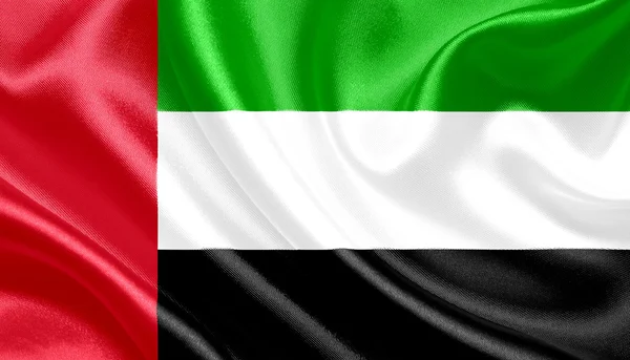
FACT SHEET: UAE marks Golden Jubilee
Overview
•On 2 December 2021, the UAE will celebrate its Golden Jubilee to mark 50 years since the founding of the nation.
•The jubilee heralds the beginning of the UAE’s national strategy for the next 50 years, supporting a new era of sustainable growth, strengthening the nation’s unique competitiveness and globally open economy.
Foreign Policy
•The UAE is increasingly seeking to strengthen its role as an active and engaged member of the international community, while promoting de-escalation and dialogue to address conflicts in the region and around the world (e.g. Abraham Accords).
•Following its election as member of the UN Security Council under the theme Stronger United, the UAE will be a constructive partner to address some of the critical challenges of our time.
Projects of the 50
•In September 2021, the UAE launched a new round of national strategic projects to lead the next era of domestic and international growth, called ‘Projects of the 50,’providing an impetus for investment in the digital and circular economies, as well as sectors based on artificial intelligence and the fourth industrial revolution.
•As part of the projects, the UAE expanded its Golden Visa eligibility, introduced Green Visas and announced a new Freelancers Visa for self-employed workers based in the UAE and overseas.
•In September 2020, the Retirement Visa was introduced in Dubai, offering resident expatriates and foreigners aged 55 and above the opportunity to enjoy the emirate’s distinctive lifestyle.
Sustainability
•Building on its 15 years of climate action, the UAE is generating innovative solutions to drive sustainable economic growth. The UAE is now home to three of the largest and lowest cost solar plants in the world.
•This year, the UAE became the first country in the MENA region to set out a strategic initiative to achieve net-zero emissions by 2050, with a USD163 billion investment in renewable energy and a three-decade action plan to follow.
•As a nation, the UAE has pioneered nature-based carbon capture, and by 2030, it will plant an 100 million native mangroves that prevent coastal erosion, support biodiversity, and capture and store carbon.
Human Rights
•The UAE is deeply committed to human rights and to building upon its steady progress in this field. Over the years, the UAE has enacted a series of laws and regulations that provide for the fair treatment of all its citizens and residents, particularly women, children, workers, and persons with special needs, as outlined in the UAE Constitution.
•More recently, the UAE adopted a new labour law, aimed at enhancing the protection of workers in the private sector, which will come into force on 2 February 2022.
•On 14 October 2021, the UAE won membership on the UN Human Rights Council for the 2022-2024 term after obtaining 180 votes in the UN General Assembly.
Legal and Social Reforms
•On 27 November 2021, the UAE announced that a new criminal code would come into force in January 2022 in the country’s largest-ever legal reform, strengthening economic, investment and commercial opportunities, in addition to maximizing social stability, security and ensuring the rights of both individuals and institutions.
•In November 2020, the UAE adopted important legislative changes, including an overhaul of personal status laws, in line with its international human rights commitments and to strengthen the country’s position as an attractive destination for investors and expatriates.
Women’s Rights
•The UAE Government has fully supported women’s empowerment since the country’s founding in 1971. The UAE Constitution guarantees equal rights for men and women.
•In December 2018, the UAE Cabinet approved a set of new policies to empower Emirati women, including legislative frameworks to address domestic violence.
•The UAE ranked first in the Arab world and 18th globally in the United Nations Development Programme’s (UNDP) 2020 Gender Equality Index.
•Women comprise 50% of the Federal National Council (FNC), the UAE’s consultative parliamentary body.
•In the UAE space sector, 34% of the Emirates Mars Mission team comprised of women, along with 70% of women in the team behind the UAE Astronaut Program, which produced the UAE’s first space mission.
•It was revealed women feel safer in the UAE than any other country, according to the Women, Peace and Security Index survey by Georgetown University.
UAE Timeline
•December 1971: The United Arab Emirates (UAE) is founded by the late Sheikh Zayedbin Sultan Al Nahyan, who presides over the federation
•May 1981: Gulf Cooperation Council is formed
•November 2004: His Highness Sheikh Khalifa bin ZayedAl Nahyanbecomes President of the UAE
•April 2006: Masdar, Abu Dhabi’s renewable energy company is launched
•June 2009: Abu Dhabi becomes home to the headquarters of the International Renewable Energy Agency (IRENA)
•January 2010: World’s tallest tower, BurjKhalifa opens in Dubai
•March 2013: Inauguration of Shams 1, the largest solar power plant in MadinatZayed
•November 2013: The nation wins bid to host Expo 2020 in Dubai
•July 2014: UAE Space Agency is established to supervise the Mars mission
•October 2017: Launch of national strategy for Artificial Intelligence
•February 2019: Pope Francis becomes first pope to visit the UAE and signing of Human Fraternity document
•September 2019: HazzaaAl Mansooribecomes first Emirati to reach space
•July 2020: UAE joins space club with successful launch of the Hope Probe from Japan
•April 2021: Two new Emiratis are selected to be part of the UAE’s astronaut corps, including the Arab world’s first female astronaut
•September 2020: Signing of Abraham Accords, which marked the commencement of bilateral relations between the UAE and Israel. The Retirement Visa was launched, offering Dubai residents an easy and hassle-free retirement option.
•September 2021: Overhaul of new UAE visa reforms to confirm UAE’s position as an ideal destination for work, investment, entrepreneurship and education
•November 2021: UAE enacts largest legal reform in its 50-year history.




